Some of the world’s most famous directors have made autobiographical features at some point in their careers with their childhood, family life or home town as the central focus. We have seen this in Federico Fellini’s Amarcord (1973), Ingmar Bergman’s Fanny and Alexander (1982), Richard Linklater’s Dazed and Confused (1993), Spike Lee’s Crooklyn (1994) and Steven Spielberg’s The Fabelmans (2022). Some directors even made their film debut with an autobiographical feature such as Francois Truffaut with The 400 Blows (1959) and Turkish director Nuri Bilge Ceylan can lay claim to this as well with Kasaba (English title: The Small Town, 1997), which is based on a short story by his sister Emin Ceyland entitled Cornfield. The movie depicts family life in a rural village in Turkey as seen through the eyes of a girl, Asiye, and her younger brother, Ali.
Ceylan has often mentioned some of the great directors that influenced him such as Michelangelo Antonioni, Yasujiro Ozu, Robert Bresson and Andrei Tarkovsky and you can see influences from their work in The Small Town, which takes a contemplative and impressionistic approach to memories of the past. There is no traditional storyline here, only a series of vignettes that occur through the change of seasons in an economically depressed village where there are few employment opportunities. Think of it as a modestly budgeted, black and white variation on the transcendental cinema of Terrence Malick as represented by The Tree of Life (2011) or To the Wonder (2012).
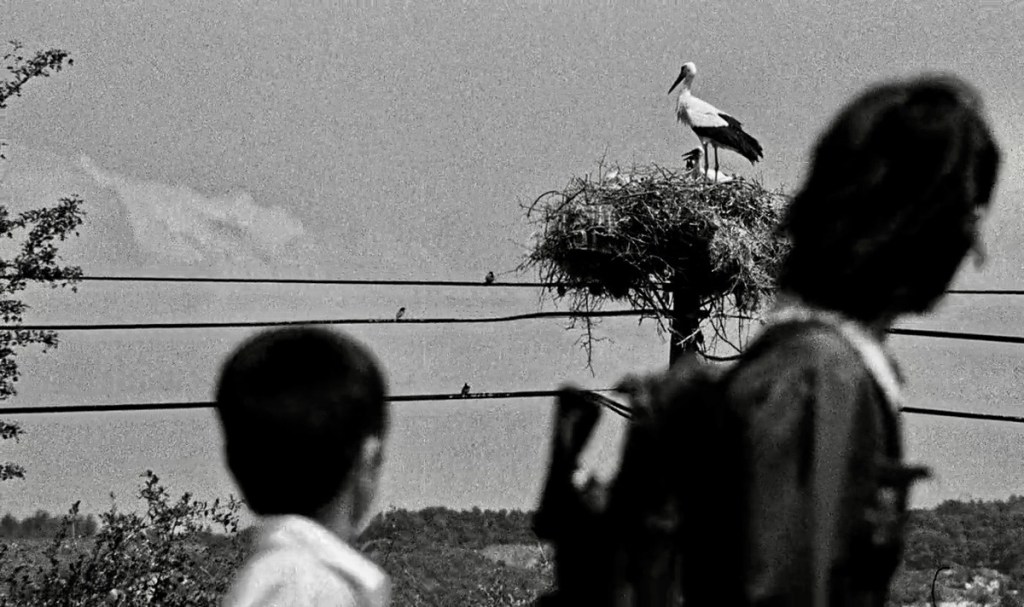
It opens in the wintertime as children play on the frozen streets and delight in watching Mad Ahmet, a local character, slip on the ice repeatedly. Later at school, the young students are instructed to read from an essay on socialization which sounds like state sanctioned propaganda: “Solidarity means loyalty to one another regarding individual feelings, interests and thoughts. The feeling of being together encourages living together. People can not live alone and meet their needs.”

But the emphasis is not solely on the dialogue in The Small Town but the imagery which is glimpsed during its recitation – small, telling details like a stray cat on the windowsill, a boy drying his socks on the wood stove, the detached teacher gazing at the falling snow and stray dogs scurrying around the deserted streets.
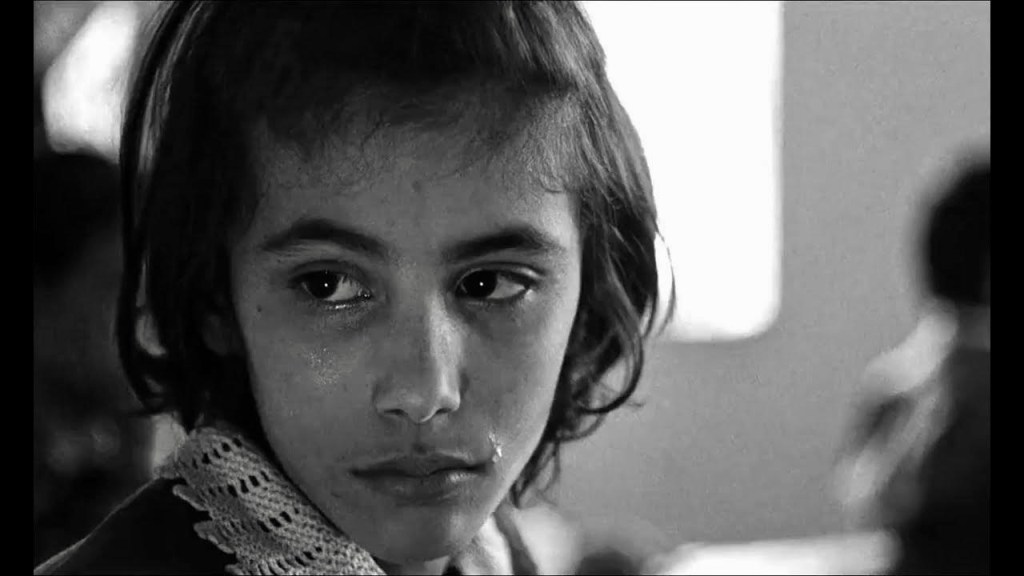
At one point, the teacher smells something unpleasant and blames it on the lunch Asiye (Havva Saglam) brought from home. Declaring it spoiled, he orders Asiye to throw it away but her embarrassment is soon forgotten as the class becomes more interested in a floating feather that eventually descends on the teacher’s desk.
It isn’t just Ceylon’s poetic visual approach that enthralls the viewer but his immersive sound design and sparse but evocative music (by Ali Kayaci) that connects the villagers with the natural world around them. When Asiye and her young brother Ali (Cihat Butun) visit a cemetery in the forest, the plum trees, the rustling meadow grasses and a turtle become supporting players in Ceylan’s intimate memory tapestry.
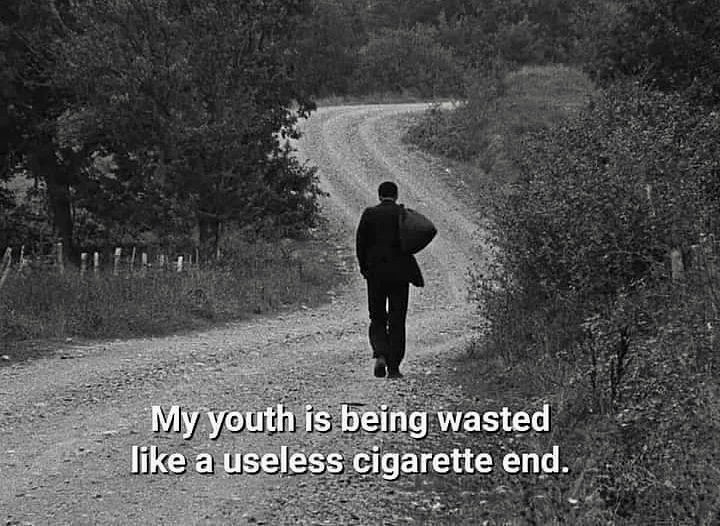
Saffet (Mehmet Emin Toprak), a cousin of Asiye and Ali, is also introduced into the story to provide an alternative viewpoint of village life. A former college student without current employment, Saffet has become a cynical loafer who feels trapped in his hometown. Unlike Asiye and Ali, who are still capable of being enthralled by nature and life’s mysteries, Saffet sees only misery ahead.

The main set piece in The Small Town is an all-night picnic in the woods where the family of Asiye and Ali and their cousin Saffet roast corn around a campfire and share stories on a variety of topics which range from the grandfather’s tales of the war to a history lesson on Alexander the Great to a generation-gap argument between Asiye’s father and Saffet.

What emerges from this campfire encounter is how globalization and migration has affected the residents of this rural backwater. The older generation bemoans the vanishing of the life they once knew while Asiye’s middle aged father complains about the hard work and sacrifices he had to make to raise a family, a rant that is aimed at Saffet, who appears too bitter and rebellious to accomplish anything.

In the end, The Small Town presents a multi-generational view of an isolated rural village in Turkey where everyone is trapped in their own reality. Childhood is not idealized and can even seem petty and cruel as repesented by Ali. A typically curious young boy with an aggressive streak, he mischievously hurls small rocks at an elderly man, beats insects on the ground with a stick and places a turtle on its back so it is defenseless and can’t turn over. The turtle, in this arrested state, can be seen as a metaphor for Saffet’s life in the village – struggling to change the situation but unable to rescue himself.
For Ceylan, The Small Town was a distinctly personal project. He raised the money for the production himself (a sum of $15,000) when he was turned down for financial assistance from the Turkish Ministry of Culture. He also cast family members, friends and non-professional actors in the main roles and co-wrote the screenplay with his sister Emin. He even filmed it in the village where he grew up – Yenice in the province of Canakkale in Turkey.
In an interview for the Turkish newspaper Radikal, Ceylon described the challenges facing him on his first feature: “With the confidence given to me by [the short film] Cocoon [aka ], my next film The Small Town came much easier. We were two people again, me and my assistant Sadık İncesu. We did everything in this movie, the entire production and carrying stuff around….My starting point was a story of my sister Emine Ceylan. There were autobiographical elements in it and leanings from Chekhov, my favorite writer. There was a script, but all those ideas came to me during shooting. Not before shooting, but after operating the camera. I changed the script a lot at that point. The actors were surprised because they had to do things they did not rehearse. The actors did not know what happened in front of and behind the play they were taking part in at that moment. They were saying things they didn’t understand why.”
The Small Town is considered the first in an unofficial series known as “The Provencial Trilogy” and includes Mayis Sikintisi (English Title: Clouds of May, 1999) and Uzak (English title: Distant, 2002). Today Ceylon is considered one of the most important directors currently working in Turkish cinema but his films have not been popular with the average moviegoer in his country. The critics love him but he is often pigeonholed in the category of “slow cinema” which includes the work of Bela Tarr (Satantango) and Chantal Akerman (Jeanne Dielman, 23, quai du commerce, 1080 Bruxelles) and is the opposite of commercial mainstream moviemaking.
Almost from the beginning Ceylon became a filmmaker to watch after his short film Koza (English title: Cocoon, 1995) won the Palme d’Or at Cannes for Best Short Film. The director has since become a Cannes favorite, winning the FIPRESCI award for Iklimler (English title: Climates, 2006), the Best Director prize for Uc Maymun (English title: Three Monkeys, 2008), the Grand Prize of the Jury for Bir Zamanlar Anadolu’da (English title: Once Upon a Time in Anatolia, 2011) and the Palme d’Or for Kis Uykusu (English title: Winter Sleep, 2014). Kuru Otlar Ustune (English title: About Dry Grasses, 2023), Ceylan’s most recent film, was nominated for the Palme d’Or and also Best Actress (Merve Dizdar) at Cannes and could possibly end up as a Best Foreign Language Film nominee in the 2024 Oscar race.
For a debut feature, The Small Town certainly earned plenty of critical acclaim and awards such as the Caligari Film Award at the Berlin International Film Festival, the Silver Award at the Tokyo International Film Festival and most promising artist at the Turkish Film Critics Association.

Ceylon best summed up his approach to film in an interview with The Hollywood Reporter, stating, “Though my films are rooted in some political and social realities of Turkey to some extent, I hope they rather try to explore themes of existentialism, alienation and the human condition to create a sense of introspection and philosophical inquiry.”
The Small Town is not currently available on any format in the U.S. but if you own an all-region Blu-ray or DVD player you can purchase The Complete Films set from Drakes Avenue which includes Kasaba, Clouds of May, Uzak, Climates, Three Monkeys, Once upon a Time in Anatolia, Winter Sleep, The Wild Pear Tree and the short film, Koza. plus several interviews with Nuri Bilge Ceylan and behind the scenes documentaries.
Other links of interest:
https://www.nuribilgeceylan.com/movies/uzak/press_turkishtimeintrvwing.php
https://www.dailysabah.com/cinema/2014/06/14/nuri-bilge-ceylan-innovative-bold-and-independent

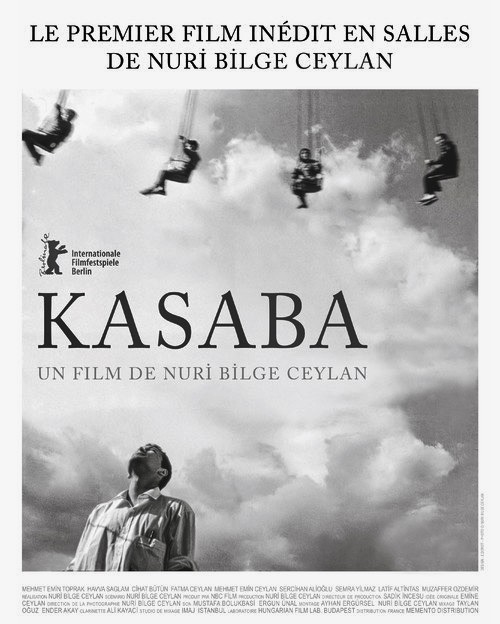
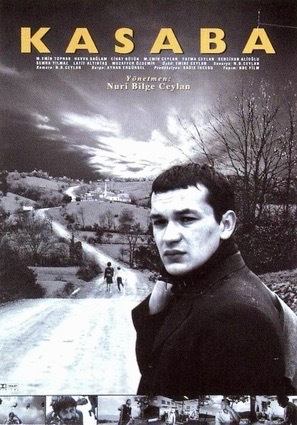
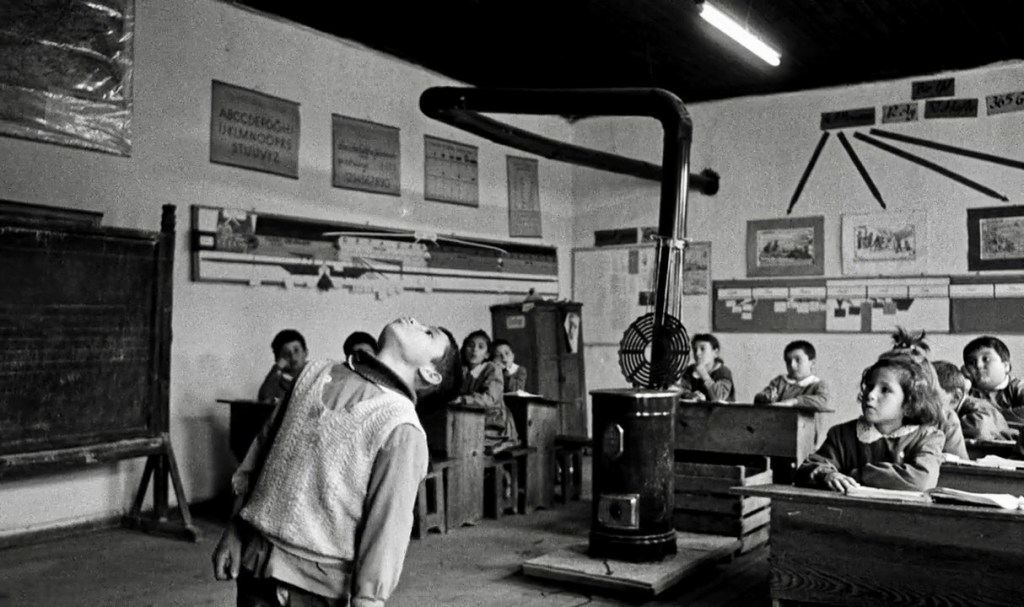

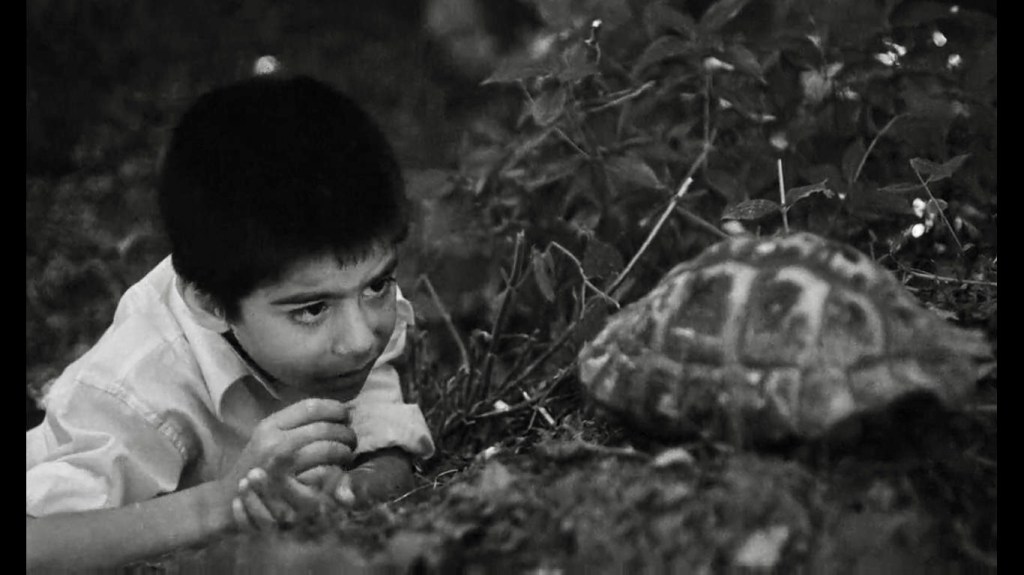

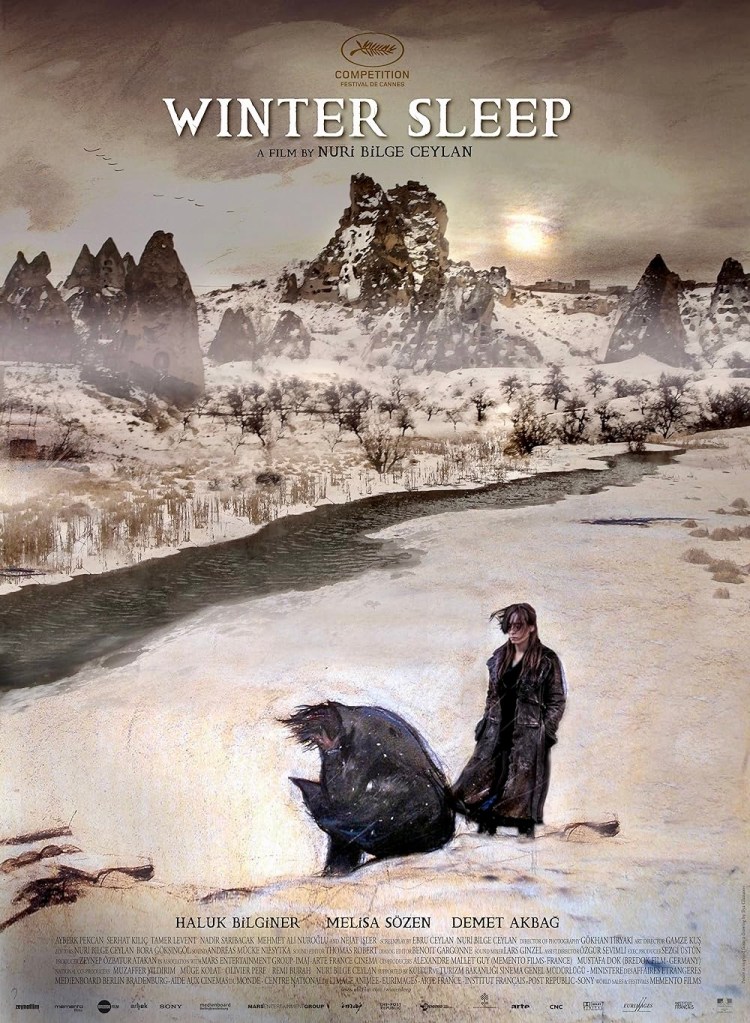

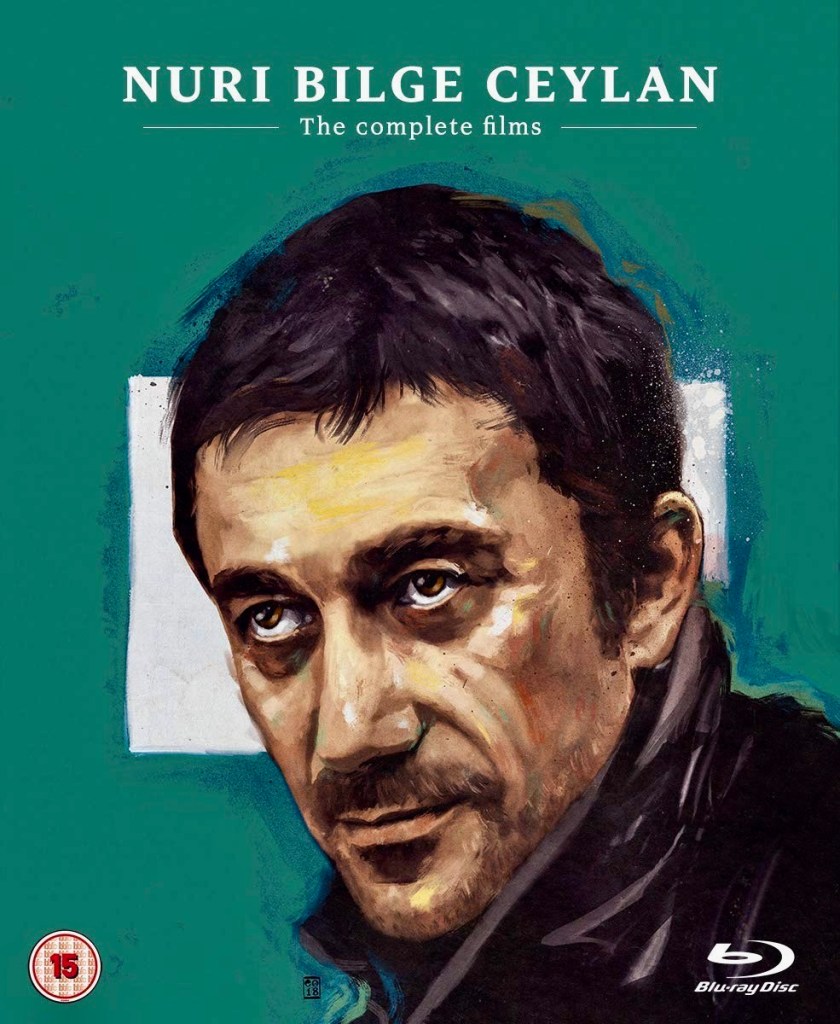
Howdy J., It might seem strange in times of nearly zero morale out there, but I wonder if they really killed the/a turtle for the sake of this indeed plotless movie … ??? If so …😡🤬😡☠💀 I stopped watching then, because I was just too depressed. No offence, I just wonder. Cheers,Wolfgang